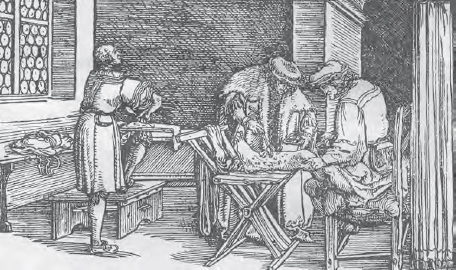Galen of Pergamum (c. 129–c. 216 C.E.) preserved Hippocratic medicine, which continued largely unchanged through the Renaissance. Galen was able to increase knowledge of physiology by dissecting pigs and apes, since human dissection was against Roman law. He learned how to treat trauma and wounds while working as a physician in a gladiator school. Galen performed many operations, including brain and eye surgery (the removal of cataracts), which were not attempted again for almost 2,000 years. He eventually became a physician to Marcus Aurelius (121–180 C.E.). In the ninth century, Galen’s writings were translated into Arabic by Hunayn ibn Ishaq (809–873). However, the Arabs rarely practiced surgery, and among Christians, the knowledge and practice of surgery had already been abolished. Galen remained so highly regarded that when dissections during the Renaissance appeared to contradict his descriptions, they were considered anomalous. His prescription of bloodletting for almost every illness was followed as late as the nineteenth century.

An illustration from The Great Surgery Book (1526) by Paracelsus (Art Archive).

